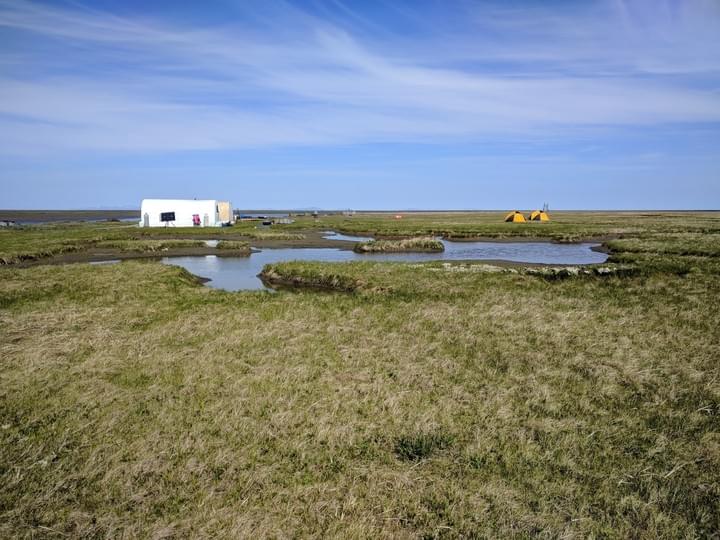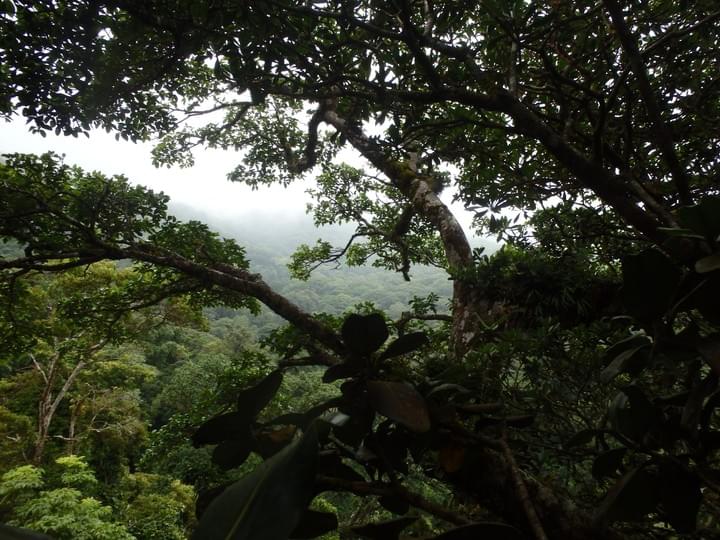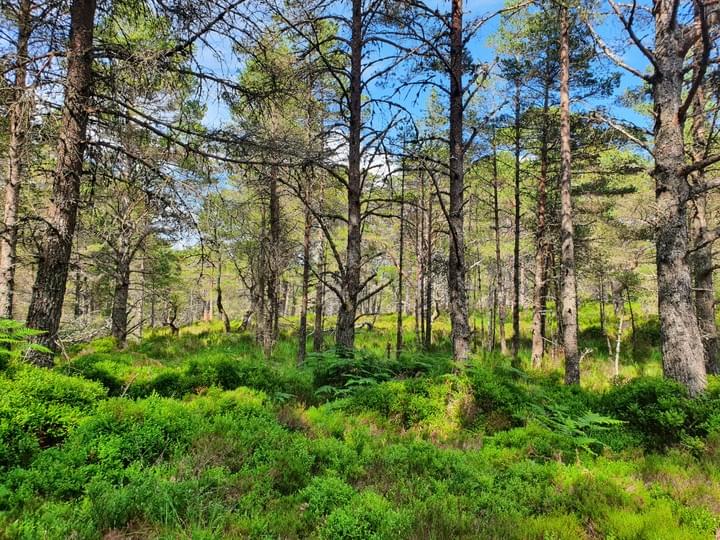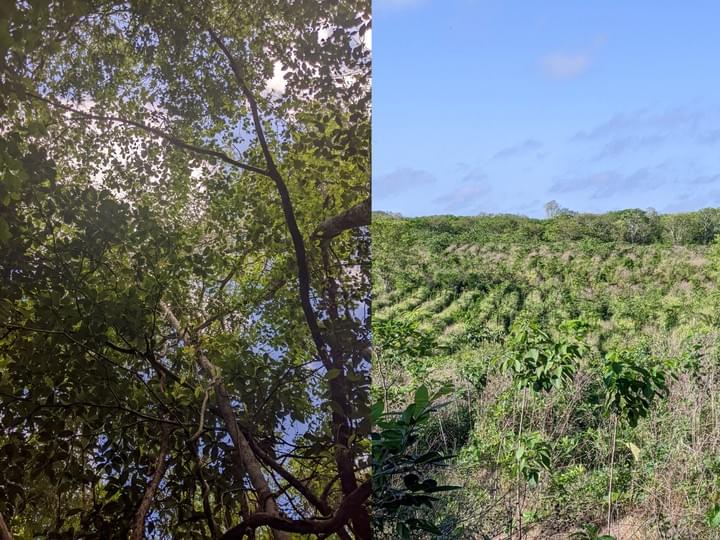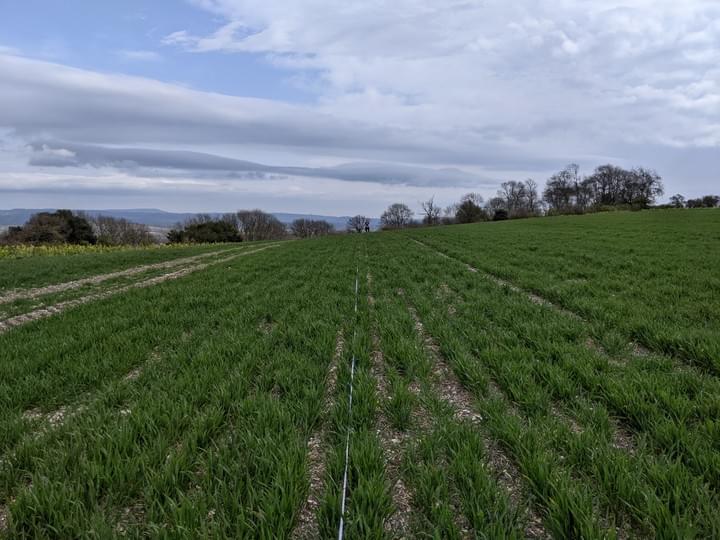
Waring Ecology Lab
Plant, microbial, and ecosystem ecology
About the Lab

Climate change is caused by an imbalance in the global carbon cycle - human activity has increased the concentration of carbon in the atmosphere. To predict and mitigate the effects of climate change, we need to understand how carbon flows between the atmosphere and its two other major reservoirs on land: plants and soils. The Waring Ecology Lab at Imperial College London investigates how the ecology of plant and soil microbial communities influences the carbon cycle and its feedbacks on climate change. We also explore ways to maximise the capacity of ecosystems - especially forests - to absorb greenhouse gases from the atmosphere. Read more about our research and the people involved in these efforts!
Lab News
April 2025
A big month for the Waring Lab. Congratulations to Dr Anna Gee who successfully defended her PhD! Welcome to Hester, Georgios, and Hanif who are working on agricultural soil microbiomes and enhanced rock weathering, respectively!
May 2024
HUGE congratulations to Jessica Murray and Sam Willard, both of whom successfully defended their PhDs in the last month. We will miss you, but know you are going on to do more spectacular research!
19 October 2023
The lab is grateful to acknowledge support from The Michael Uren Foundation for a new project examining sustainable intensification of agriculture through soil microbiome manipulation. We are also delighted to welcome PhD student Alice Day, who will be working on related projects!
September 8 2023
Jessica was featured on NPR's Science Friday talking about her research on canopy soils!
June 2023
The Waring Lab has had an exciting summer thus far! Anna and Lena attended the BES symposium on 'Trees for Climate Change Biodiversity, and People.' Gregory conducted his first enhanced weathering measurements after addition of tonnes of rock dust to our field site in Wales. Bonnie visited the team on the Yukon-Kuskokwim Delta in Alaska to help with gas flux measurements!
Fall 2022
The Waring Ecology Lab welcomes new PhD student Gregory Jones, who is joining our group to explore whether enhanced rock weathering can augment forest carbon capture in reforestation.
September 12 2022
Congratulations to the graduating Masters students who conducted research in the Waring Lab this past year - Nick Eves, Alex Guo, Lucia Hudson, and Gregory Jones!
April 12 2022
The Waring Lab has received a NERC grant to investigate belowground consequences of extreme weather events - in this case, Storms Eunice and Franklin which caused large scale tree mortality across the UK.
December 1 2021
Congratulations to Dr. Guopeng Liang, who successfully defended his dissertation!
September 13-15 2021
Congratulations to a wonderful cohort of Masters students in the Waring lab at Imperial who are defending their dissertations: Yundi Bai, Beth Brand, Naomi Housego-Day, Xiaojing Huang, Lydia Joshua, Wang Ye, Saule Ziogelyte. Amazing work by an amazing team!
September 7 2021
Bonnie provided evidence at a House of Lords panel on nature-based solutions to climate change, which you can view here.
September 4 2021
Guopeng's first PhD chapter is now out at Global Ecology and Biogeography. Congratulations Guopeng!
Summer 2021
The lab welcomes our new technician, Lena Lancastle, and two new PhD students, Lucrezia Slinn and Anna Gee.
April 23 2021
This article in The Conversation explores why forests are critical for human wellbeing, even though they won't solve the climate crisis alone
November 18 2020
Bonnie did a Reddit AMA exploring the co-benefits and risks of large-scale tree planting to mitigate climate change
July 3 2020
Bonnie will be discussing the role of trees in fighting climate change in a panel at London Climate Action Week - register here!
June 1 2020
The Waring Ecology Lab has moved to its new home at Imperial College London! We are thrilled to be a part of this vibrant research community.
Where we work
The Waring lab travels all over the world to study the soil carbon cycle and its feedbacks to global change. Our past and current projects span the tundra to the tropics... check out our site photos below!

Yukon-Kuskokwim Delta, Alaska
Exploring responses of high latitude wetlands to climate change and herbivory

Costa Rica
Biogeochemistry of canopy (and terrestrial) soils

Great Britain
Ecology of established and newly planted forests

Mexico
Seedling dynamics in reforestation

Wheat farms across England
Optimizing agricultural microbiomes
Waring Lab press
16 August 2023
Imperial College London News
14 July 2023
MIT Joint Program on the Science and Policy of Global Change

